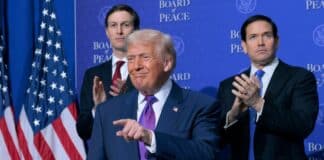China has imposed tariffs on U.S. imports in response to those implemented by President Donald Trump.
“The unilateral imposition of tariffs by the US seriously violates the rules of the World Trade Organization,” the State Council Tariff Commission said in a statement, as per the Associated Press. “It is not only unhelpful in solving its own problems, but also damages the normal economic and trade cooperation between China and the US.”
Stephen Dover, chief market strategist and head of the Franklin Templeton Institute, told the AP that a “risk is that this is the beginning of a tit-for-tat trade war, which could result in lower GDP growth everywhere, higher U.S. inflation, a stronger dollar and upside pressure on U.S. interest rates.”
China will implement a 15% tariff on coal and liquefied natural gas as well as a 10% tariff on crude oil, agricultural machinery, and large-engine cars imported from the United States.
The U.S. exported 2.3% of its total natural gas exports to China in 2023.
The tariffs will go into effect on February 10.
China has also launched an antitrust investigation into Google, placing it on a list for potential sanctions, and announced mineral export controls on tungsten, tellurium, bismuth, molybdenum, and indium.
Trump paused the tariffs on Canada and Mexico for 30 days after both countries agreed to increase border security efforts. The decision follows negotiations with Canadian Prime Minister Justin Trudeau and Mexican President Claudia Sheinbaum, who committed to strengthening border enforcement and cracking down on drug trafficking. His 10% tariff on China remains.





